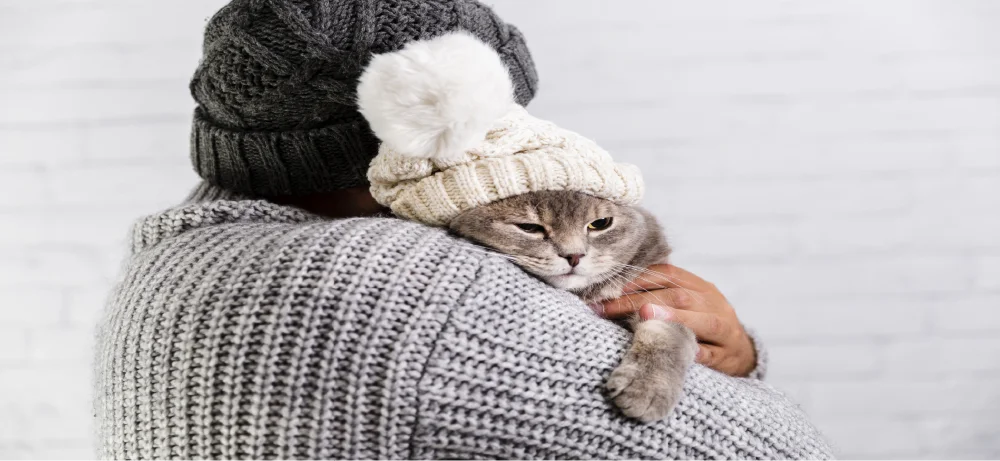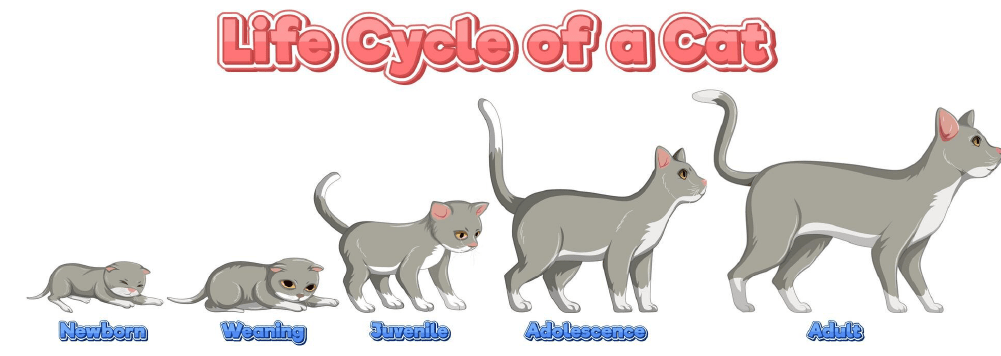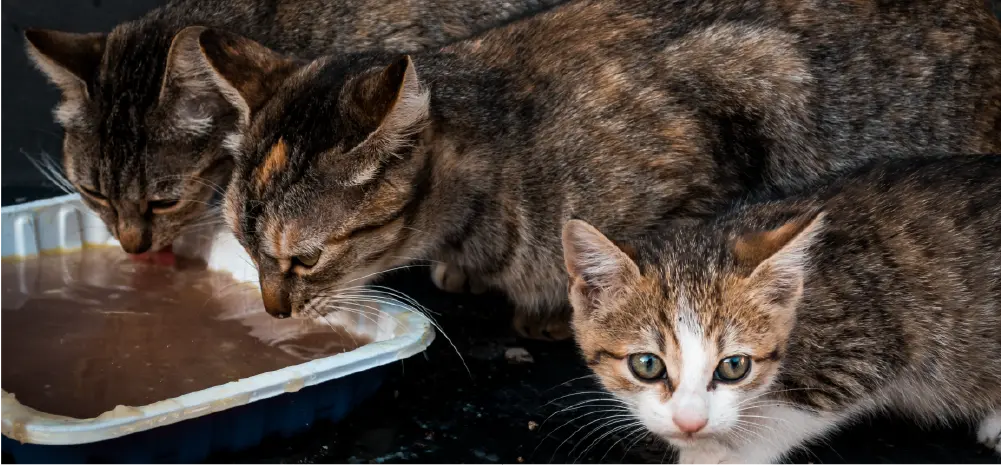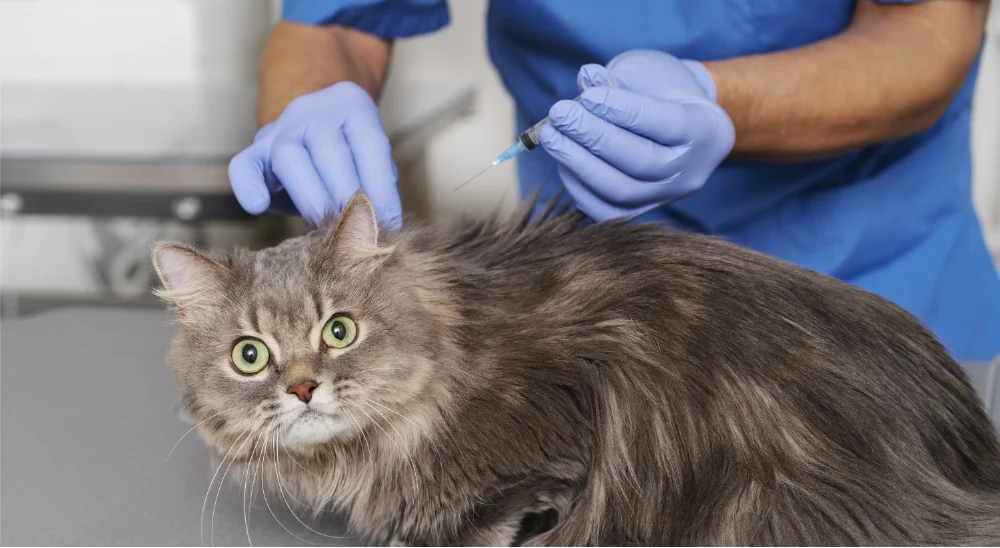Even though they have a nice coat of fur, your kitties do get cold during the winter season. Keeping your cats healthy in winter requires a proactive approach and extra care during the colder months to keep them comfy, safe, and warm.
In this article, I’ll cover the Winter Cat Breeds including winter and hazard-proofing your home, recognizing cold symptoms, diet and care adjustments, and the best forms of preventive care.
Winter Home Safety
Keeping Kitty Warm
cats love warmth, so winter can be hard for them in crisp or drafty houses. To keep your feline agreeable in winter, ensure that your house is satisfactorily warmed and that your feline doesn’t stall out outside, above all else.
Winter-proofing your home can be as easy as stocking up on some extra supplies to keep your cat feeling warm and cozy. You might want to invest in some of the following for your kitty:
- Fuzzy throw blankets they can snuggle up in
- Cat-safe veterinary approved heated beds
- Cat window perches to maximize their time in the winter sun
- Cat winter coats or sweaters for an extra layer
Indoor Holiday Hazards
Ensure your feline is regulated around occasion enhancements and Christmas trees (gleaming decorations are kitty magnets). Little parts can introduce gagging and stomach-related perils for cats.
Lit Christmas trees can be handily pushed over, making a high fire risk. Know that on specific occasions plants are profoundly harmful to cat, like mistletoe, holly, and poinsettias.
Use alert with chimneys, wood or gas ovens, and space warmers, and never abandon your kitty in a room with these intensity sources. Keep candles out of your feline’s scope and screen them intently when lit.
Winter Grooming Tips for Cats
Cats normally foster a thicker coat during winter, so their fur could require some extra prepping and care during this time. Dry winter air can aggravate your feline’s skin and make their fur more fragile, which can make your kitty self-conscious.
In cold weather, these grooming tips can help keep your cat looking and feeling their best:
- Brushing two or three times a week to prevent matting (daily, for long-haired cats)
- Dry your cat thoroughly if they get wet or take a bath
- Avoid bathing them too often to preserve their skin’s natural oil
- Keep their paws extra clean
- Check for dry, irritated, or flaky skin, and consult a veterinarian if your cat has these symptoms
Indoor Enrichment and Exercise for Cats in Winter
Wintertime can be a less invigorating time for cat, with its cooler temps and more limited sunlight hours, and very much like people, they can experience the ill effects of weariness and occasional discouragement.
It’s essential to keep your feline dynamic and engaged during long cold weather months inside. Keeping your feline versatile can likewise assist them with remaining trim and solid.
Some easy ways to keep your cat stimulated and happy at home:
Play with a fishing pole feather toy – cats love running around chasing them!
Hide their toys around the house to play hide and seek
Buy a bird feeder so your cat is entertained when looking out the window
Use puzzle food bowls or treat bowls to make meals an interactive experience
If your cat is acting lethargic and has lost interest in the activities they usually enjoy, I recommend a check-in with your veterinarian.
Winter Hydration for Cats and Diet Adjustments
cat are by and large less dynamic in winter and rest more, so typically their calorie needs will be lower. Counsel your veterinarian assuming your feline is putting on weight or on the other hand if you don’t know how much food they ought to eat, yet by and large, I suggest scaling back the treats in winter in any case.
A chilly climate likewise implies a drier climate, so cat need additional water to remain hydrated. Ensure that your feline has new water set out morning and night so they can drink up. Consider drinking fountains to empower more successive excursions.
Wet food is an incredible wellspring of additional hydration and ought to be integrated into your feline’s eating routine. Wet food will in general be lower in calories contrasted with dry food which additionally assists with keeping them trim.
An omega-3 or fish oil supplement likewise can assist with keeping your feline’s jacket thick and sound during winter. On the off chance that you suspect your feline isn’t getting sufficient omega-3 from their eating regimen, counsel a veterinarian to check whether they would profit from an enhancement. Roll out no improvements to your feline’s eating regimen without speaking with a veterinarian first.
Hypothermia in Cats and Feline Frostbite Prevention
Outdoor cats are at risk of frostbite and hypothermia in the winter. Young or very old cats are extra susceptible to cold symptoms, as are hairless cat breeds or cats with health problems.
Signs of hypothermia in cats to look out for can include:
- Lethargy or weakness
- Feeling cold or shivering
- Cold red skin, especially on extremities like ears, paws, and tails
- Slow breathing
- Falling over or losing consciousness
The best way to prevent feline frostbite or hypothermia in cats is to keep them inside during the below-freezing temperatures. Make sure that your cat has a cozy place to stay warm inside.
A cat experiencing hypothermia should be immediately taken to a warm room with warm blankets and head to the emergency clinic in a heated vehicle.
Special Considerations for Senior Cat Winter Care
A chilly climate can fuel side effects of solidness and joint pain in cat and make them much more awkward. On the off chance that you’re focusing on a senior feline or a feline who’s been determined to have joint pain, take additional consideration to keep them agreeable in winter.
I suggest making a delicate, warm spot for them to rest and add additional covers, pads, or fluffy tosses to give their bed some separation from cold floors. A pet-safe warmed bed can likewise be a superb choice for our senior cat.
Guarantee that your kitty is likewise getting sufficient activity to battle solidness and keep them moving. On the off chance that your feline appears to be awkward or in torment, I prescribe contacting a veterinarian to survey the best course of treatment for their joint pain.
Short-Haired Feline Winter Tips
Short-haired or bald cats are more vulnerable to cold since they miss the mark on defensive fur that keeps different kitties warm. Additional consideration ought to be taken to keep these sorts of cats warm throughout the cold weather months.
You can utilize many of the existing tips in this post to keep short-haired cats warm in winter, including pet-safe heated beds, extra blankets, non-constricting jackets or sweaters, elevated sleeping arrangements away from cold floors, and extra monitoring for symptoms of cold, frostbite, or hypothermia.
I do not recommend taking out short-haired cats in severe winter conditions like snow or freezing rain due to the elevated risk of frostbite or hypothermia, so you should take additional steps to keep them active and entertained indoors.
Emergency Cat Care in Winter
The best crisis care is preventive consideration, so keeping your kitty warm, hydrated, and all-around taken care of in winter is extraordinary protection against numerous cool-related crises.
On the off chance that your feline encounters a crisis like frostbite or hypothermia, it’s vital to get them assessed by a certified veterinarian right away. Try not to endeavor to treat climate-related crises at home as your feline requires expert consideration to appropriately recuperate.
Besides crises, assuming your feline is showing side effects of the colder time of year blues – laziness, weariness, or misery, I prescribe planning a veterinary exam to guarantee that they’re solid and get a few proposals for how to give them a much-needed boost until the end of the time.
End Of Winter Cat Breeds
Guarding your kitties in the colder time of year can be basic – simply follow these veterinary-supported tips. Make comfortable spaces for them to keep warm, guarantee that they stay hydrated and very much taken care of, watch out for any side effects of sickness or misery, and you and your feline ought to have a great time season together.
In the event of any colder time of year-related feline well-being concerns or crises, keep steady over their side effects with an in-home health exam by a certified veterinarian. We’ll ensure your kitty is OK and give a few noteworthy hints on how to winter-confirmation your home for them.
Frequently Asked Questions About Winter Cat Breeds
How might I make my home more feline-accommodating in winter?
Add additional covers to get your cat far from cold floors and make warm, comfortable spaces for them to rest. Guarantee your feline’s bed is in a space away from cold drafts. Set aside some margin to feline resistant your vacation improvements, Christmas tree, and intensity sources, similar to wood and gas ovens and space warmers.
What are the indications of hypothermia in cats?
The fundamental indications of hypothermia in cats are laziness, shuddering, cold skin, slow breathing, and loss of awareness. cat showing any of these side effects ought to be moved to a warm space quickly and assessed by a veterinarian to ensure they’re OK.
How might I change my feline’s eating routine in the colder months?
Talking with a veterinarian will decide the best dietary changes for your particular feline, however, a few cats might require fewer calories in the colder time of year since they’re less dynamic. cat may likewise profit from dietary enhancements like fish oils.
What are a few indoor exercises to keep my feline dynamic in winter?
Urge your feline to play inside throughout the cold weather for a long time to keep it blissful and locked in. Intuitive riddles or even a straightforward casting rod feather toy are incredible devices for mental feeling.
How might I guarantee my open-air feline is protected during winter?
The most effective way to protect a feline during winter is to bring them inside. I don’t suggest a huge outside time for cats in the colder time of year as they are powerless to frostbite, hypothermia, and other ailments.
Care Pet Hub: Winter Cat Breeds
At Care Pet Hub, we’re dedicated to providing pet owners with reliable advice and insights to keep pets healthy and happy year-round. With tips tailored for every season, our resources ensure you have all the tools you need to keep your furry friend safe. Visit Care Pet Hub for more expert advice on pet care and well-being this winter!



